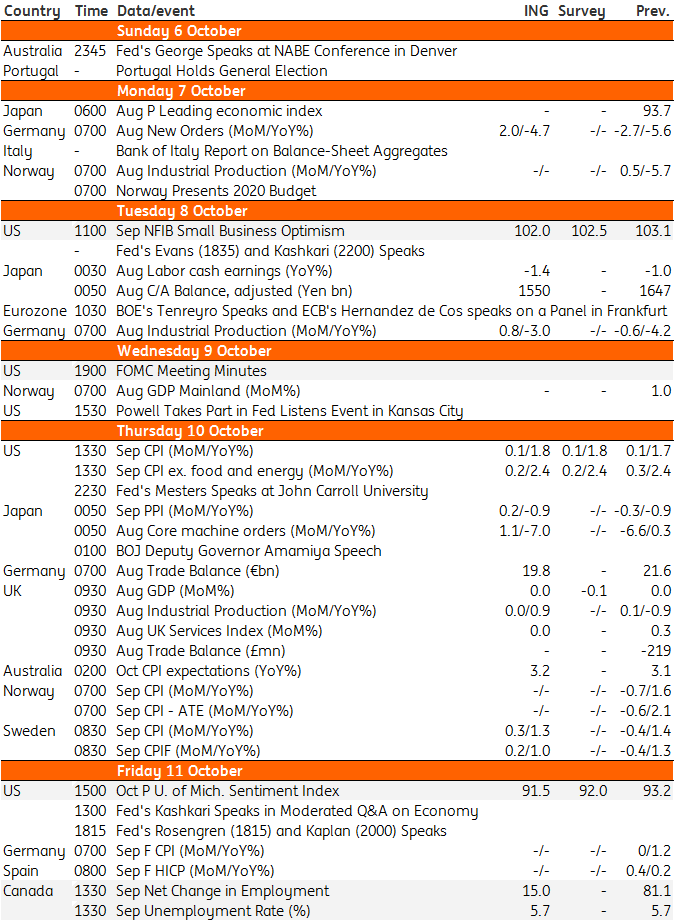Next week's data should confirm some weakness in the US and Canada - and could give us more insight into future rate cuts from both central banks. Also, there's more Brexit news on the way though we believe the chances of a deal beeing approved by Parliament are still low
US: Slowdown signals
We have regularly talked of the headwinds facing the US economy and particularly its manufacturing sector. Weak global growth in an environment of dollar strength is creating a tough environment to export into and a long and fraught trade battle is amplifying the downside risks for growth. This was clearly evident in the ISM manufacturing survey, which posted its weakest reading for 10 years. The direct implication is that profitability is under threat and businesses are becoming more nervous about the economic outlook and are pulling back on investment and hiring. The upcoming data is likely to highlight that the small business sector is not immune, with the National Federation of Independent Businesses’ survey set to edge lower while the University of Michigan confidence index is also expected to see some softening. Inflation is broadly in line with the target so we expect to hear Federal Reserve officials indicate a willingness to offer more stimulus in the coming months. We continue to look for further 25 basis point rate cuts in December and in 1Q20.
Canada: Focus on jobs report
In Canada, the jobs report will be in focus and any softness here amid the pessimism on global growth could reignite the prospects of an interest rate cut. Nothing is expected in October given the proximity to Federal elections, but we continue to see the potential of a rate cut before year-end.
UK's Brexit proposals in focus as time runs out for a deal
The UK's Brexit proposals have been met with skepticism by the EU, and as things stand, the chances of a deal being agreed and approved by Parliament appear low. Talks are ongoing between both sides, and it is possible the UK is willing to make concessions to make its plan more palatable to EU leaders - perhaps by reverting to asking for a time limit on the existing Irish backstop. However, it's not clear that this approach would succeed, or that any middle ground exists between what is acceptable for the EU, the Prime Minister, and the UK Parliament. Our base case remains that we are heading for another Brexit delay and late-2019 election.
Developed Markets Economic Calendar

Disclaimer: This publication has been prepared by ING solely for information purposes irrespective of a particular user's means, financial situation or investment objectives. The information does not constitute investment recommendation, and nor is it investment, legal or tax advice or an offer or solicitation to purchase or sell any financial instrument. Read more
